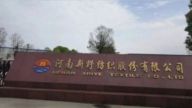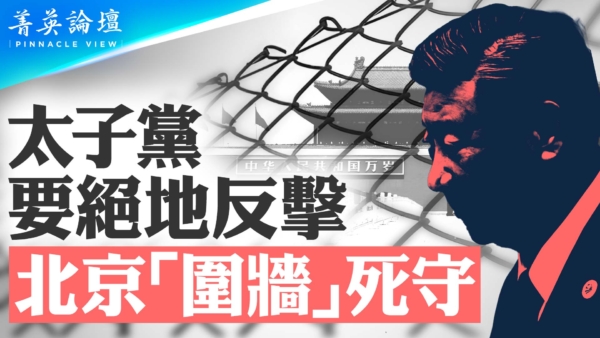【新唐人2013年12月11日讯】中共的银监会和央行最近分别释放出消息,要加快推出“银行破产条例”和“存款保险制度”。专家指出,目前中国经济和银行系统出现了巨大问题,北京不得不采取西方的做法,但是在现行的制度下,最后的结果,可能是导致民营银行倒闭的同时,把老百姓最后一点钱骗进大型国有银行。
据《中国证券报》12月9号报导,中共银监会副主席阎庆民,在“北大经济国富论坛”上表示,中国非信贷业务的综合化经营水平有待提高,银监会正酝酿加快推出“银行破产条例”,如果商业银行最后资不抵债,就会退出。
另外,由《搜狐网》主办的年会论坛,12月8号在北京举行。央行副行长刘士余在论坛上表示,目前具备推出“存款保险制度”的时机,业界呼吁多年的“存款保险制度”有望于明年初推出。
中国金融智库研究员巩胜利:“第一个原因,中国经济的风险正在增大,第二银行业破产的风险也在增大,第三,中国经济,特别是老百姓害怕钱拿到银行后,有去无回。这三种风险决定了,北京方面要作出一定的回应和对策。有些政策出炉是被大型企业、大型银行绑架。”
大陆房地产大亨任志强在“搜狐年会论坛”上表示,过去十年中,政府用闲不住的手,干扰市场,而造成中国经济巨大波动和许多领域中的倒退,包括产能结构调整,不但没有优化反而恶化。
中国经济学家茅于轼表示,政治上如果没有大的改变,经济改革也不可能成功,国家的进步往往被忽略了。
据了解,中国的“存款保险制度”,首先是在央行下属的“金融稳定局”内,设一个“存款保险基金”,并由基金来管理,性质类似社保基金,等到未来条件成熟时,再设立完全独立的存款保险公司。
巩胜利:“按照市场经济国家的规则,都要有保险,其一可能是为未来,可能会壮大,还有就是,即使现在赔不了老百姓,但是设在那儿,老百姓就看一看,有保险了,我们的钱放在那儿可能安全一些吧。”
中国金融智库研究员巩胜认为,对于一直在夹缝中求生存的中国民营中小银行而言,“存款保险制度”的推行是雪上加霜。
一方面由于中小银行风险系数比国有大银行更高,中小银行可能会缴纳相对于国有大银行更高比例的保费﹔另外,由于破产风险的存在,储户可能会将存款从中小银行搬到国有大行﹔这样一来,中小银行为了吸收存款,可能会被迫提高存款利息,进而缩小存贷息差、增加经营成本。
《中国经营网》分析认为,“存款保险制度”的推行,是部分中小银行破产的前兆。
中央财经领导小组办公室巡视员方星海,在大陆《财经》网的年会上预计:也许明年某个时候,一、两家中小型的银行发生计提、倒闭的可能性很大。
那么,在现行的体制下,中国的所谓金融改革到底是为了谁呢?
大陆金融投资顾问郑志遥:“保险制度主要是针对民营银行,因为银行一破产,接下来政府要破产,政府在破产之前,先把老百姓搞破产,多印些纸币,通货膨胀一些,蒸发货币是看得见的,看不到的就是挽救银行,其实挽救银行,就是在挽救政府。”
天量的货币投放,与银行业持续钱荒,这种互相背离的现象,已经成为中国金融系统特有的怪异现象。 10月底,中共总理李克强表示,广义货币供应量M2已经是GDP的两倍,再多发票子就有可能导致通货膨胀,以致破坏市场,甚至造成人心惶惶。
据中共银监会最新数据显示,截至三季度末,中国商业银行不良贷款余额达到5,636亿元,较年初增加707亿元﹔不良贷款率达到0.97%,较二季度末上涨0.01个百分点。不良贷款率已连续七个季度呈上升趋势。
大陆金融投资顾问郑志遥指出,银行的坏账很大部分被银行间的隔夜拆借掩盖了起来。
采访编辑/刘惠 后制/钟元
You May Lose Everything from the Deposit Insurance System
Recently the China Banking Regulatory Commission (CBRC)
and People’s Bank of China (Central Bank) of the Chinese
Communist Party (CCP) recently sent a message to accelerate
“Bank Bankruptcy Ordinance" and “Deposit Insurance System".
Experts pointed out that China’s economy and banking system
have emerged with huge problems.
Beijing had to adopt the approach from the west.
However under the current system, the final result may be
the collapse of private banks and collecting the last bit of
people’s money to large state-owned banks.
On December 9 China Securities Journal reported CBRC
Vice Chairman Yan Qingmin’s statement at Beijing University
Economy And Wealth Forum.
“China’s operations of non-credit business needs to improve,
and the CBRC is working on accelerating the launch of “Bank
Bankruptcy Ordinance".
If commercial banks’ assets could not pay back debts,
they will exit.
On December 8 Central Bank vice president Liu Shiyu said
during sohu.net’s annual forum held in Beijing: “Currently it
is a good time to launch the “Deposit Insurance System,"
which was expected for many years.
It will hopefully be launched in 2014.
China’s financial think tank researcher Gong Shengli:
“The first reason is the increasing risk of China’s economy;
Secondly, bankruptcy risk of the banking sector increased;
Thirdly, Chinese people worry that their money put in the
bank wont come back.
These three risks push Beijing to make countermeasures.
Some released policies were determined by
large corporations and banks."
China’s real estate tycoon Ren Zhiqiang expressed during
the “Sohu Annual Forum" that the government’s restless
intervention to the market in the past decade has caused
huge economic fluctuations and retrogression in many fields.
So its production structural adjustment was a step back
rather than making progress.
Chinese economist Mao Yushi said economic reform
cannot succeed without any major political change.
The country’s progress is often ignored.
It is understood that China’s “Deposit Insurance System"
is to first set up a “Deposit Insurance Fund" at the Financial
Stability Bureau reporting to the Central Bank.
It will be managed by the “Deposit Insurance Fund",
similar to the “Social Security Fund".
Independent deposit insurance companies will be set up
once the situation has matured.
Gong Shengli: “Market economy must have insurance.
It is good for the future.
People also feel it is safer to put their money into."
Gong Shengli thinks “Deposit Insurance System" is a blow
for private small and medium (SME) banks in China which
have been struggling to survive.
On one hand SME banks have higher risk factors than state-
owned banks, so they might pay higher insurance premiums
compared to large state-owned banks;
On the other hand, people might take their money away and
put it into large state-owned banks due to bankruptcy risks.
So SMEs are forced to raise interest to attract deposits,
thus reducing profit and increasing operating costs.
“China Business Network" analyzed that implementation
of the “Deposit Insurance System" signals the collapse of
some SME banks.
CCP’s Central Financial Leadership Group Office Inspector
Fang Xinghai forecasted during the annual meeting of China’s
Finance Network:"the possibility of a couple of SME banks
collapsing next year is high."
Then, for whom is China’s so-called financial reform
in the current system?
China’s financial investment advisers Zheng Zhiyao: “The
Insurance system is mainly for private banks, as collapse of
banks would lead to bankruptcy of the government.
Before the government goes bankrupt, it will make people
bankrupt.
It is visible to see printing paper money and inflation.
What is invisible is saving the banks and the government."
High levels of money supply and continuous money shortage
have become China’s unique issue of the financial system.
At the end of October, Chinese Premier Li Keqiang said
that Quasi-money supply (M2) is already 200% of GDP.
More paper money will lead to inflation,
market disruption and even panic.
CBRC’s latest data indicate as of end of Q3, the balance of
non-performing loans of China’s commercial banks reached
563.6 billion yuan.
This is 70.7 billion yuan more compared with the start of
2013, with non-performing loan ratio of 0.97 percent,
0.01 percent higher than the end of Q2.
Non-performing loan ratio has increased
for seven consecutive quarters.
China’s Banking And Investment Consultant Zheng Zhiyao
pointed out that much of banks’ bad debts are covered by
overnight lending between banks.
Interview & Edit/LiuHui Post-Production/ZhongYuan






























